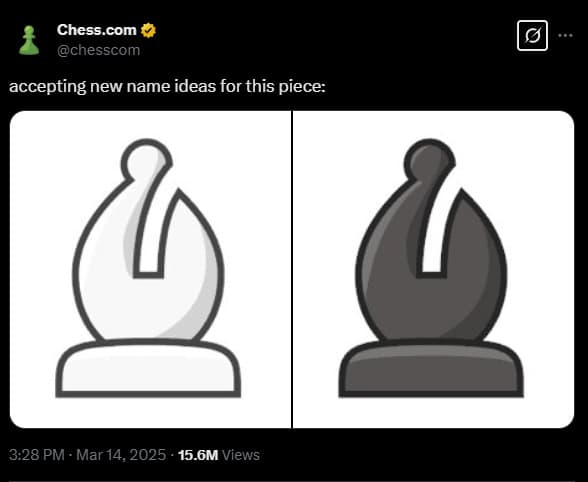Chess.com's Bishop Renaming Tweet Amasses 50 Million Views, Ignites Widespread Debate

Online chess giant Chess.com sparked a global conversation and garnered over 50 million views with a tweet posted on March 14, 2025, inviting suggestions for new names for the chess piece known as the bishop. The post, which featured images of the black and white bishop pieces, simply stated, "accepting new name ideas for this piece." This seemingly lighthearted prompt quickly became the platform's most viral tweet, drawing both amusement and considerable backlash.
The tweet ignited a contentious debate across social media, with many users interpreting the suggestion as an attempt to remove the religious and historical connotations of the "bishop" name. Critics accused the company of being "woke" and disrespecting the game's traditions, given the piece's historical association with clergy and its mitre-shaped design. The strong reactions highlighted the deep-seated connections many feel to the established elements of chess.
Following the initial uproar, Chess.com posted a follow-up on March 15, 2025, quoting their original tweet and adding, "please stop suggesting 'bishop'… silly name." This subsequent post further intensified the debate for some, who viewed it as an escalation rather than a de-escalation of the controversy. The incident underscored the varied interpretations of online content and the passionate engagement of the chess community.
Chess.com CEO Danny Rensch later clarified the company's intent, explaining that the tweet was a "playful joke" that "really went viral in the wrong way in many ways." Rensch noted that a similar, less controversial tweet about renaming the rook in February 2025 had had not generated a comparable public outcry, indicating the unique sensitivity surrounding the bishop piece.
The viral episode demonstrates the unpredictable nature of social media engagement and the diverse perspectives within the global chess community. While the company intended a humorous interaction, the tweet ultimately served as a catalyst for a broader discussion on tradition, language, and cultural sensitivities within the ancient game.